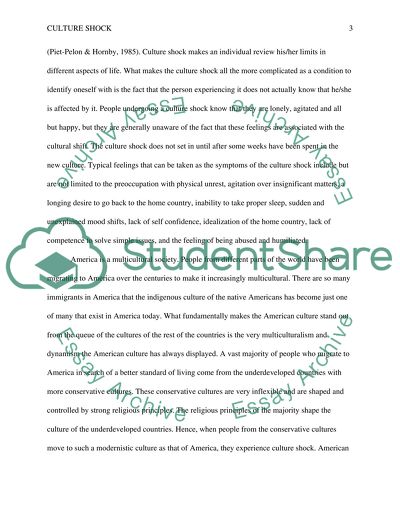Cite this document
(“Culture Shock Essay Example | Topics and Well Written Essays - 1250 words”, n.d.)
Retrieved from https://studentshare.org/sociology/1393887-culture-shock
Retrieved from https://studentshare.org/sociology/1393887-culture-shock
(Culture Shock Essay Example | Topics and Well Written Essays - 1250 Words)
https://studentshare.org/sociology/1393887-culture-shock.
https://studentshare.org/sociology/1393887-culture-shock.
“Culture Shock Essay Example | Topics and Well Written Essays - 1250 Words”, n.d. https://studentshare.org/sociology/1393887-culture-shock.


